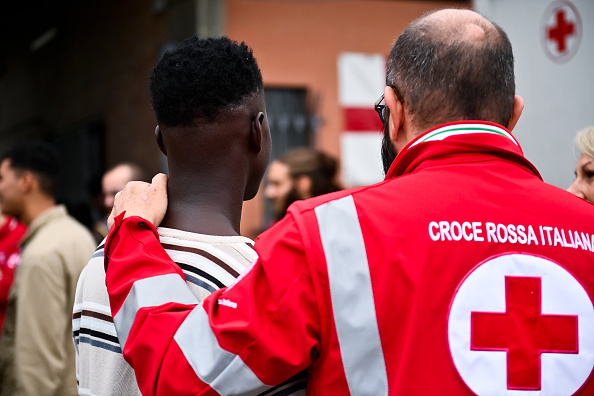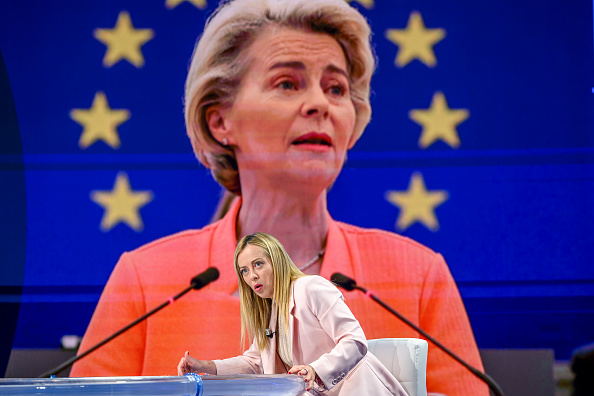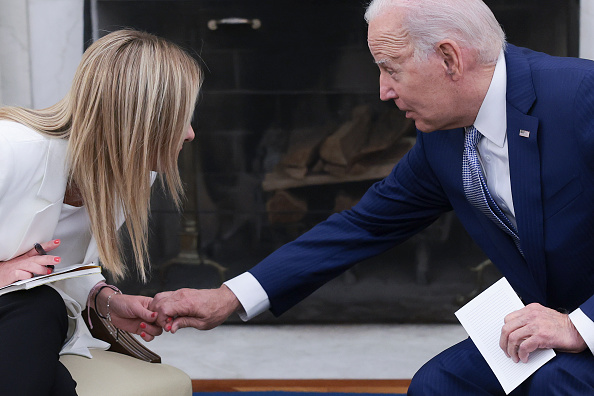Italian Prime Minister Giorgia Meloni appeared to have successfully quashed an element of a contentious G7 statement by removing the word “abortion” from the group’s final text at this year’s meeting of the organisation’s leaders.
The move appeared designed to defuse an issue that risked distracting from the high-profile summit she is hosting in her home country.
Italy holds the current G7 presidency and Meloni is presiding over the June 13-15 G7 gathering of heads of the world’s largest economies in Italy’s southern city of Bari.
A senior Italian diplomat confirmed to Reuters the word “abortion” would not appear in the final communique.
Regarding abortion, government ministers said Meloni wanted to avoid offending Pope Francis, who was attending the summit and chairing a panel on artificial intelligence.
Agriculture minister Francesco Lollobrigida told Rome-based daily newspaper Domani: “I don’t know if it was appropriate for a G7 in which the Pope also participates”.
“If they chose not to include it there must be a reason and a more than acceptable reason,” he added.
The abortion issue risked distracting from what would otherwise be a triumphant G7 summit for Meloni who, after the European Parliament elections strengthened her party’s vote share.
Other G7 leaders such as US President Biden, French President Emmanuel Macron and UK Prime Minister Rishi Sunak were under pressure politically at home.
France and Canada had pushed hard for a clause in the G7 summit’s final declaration stating members would guarantee access to “safe and legal” abortions, as well as post-abortion care.
Macron and Canadian PM Justin Trudeau would have preferred the G7 to make a stronger statement on abortion than the one its leaders made last year at their summit in Japan.
Macron escalated the battle on June 13 when, speaking to an Italian journalist, he said: “You know France’s position, which has enshrined the right to abortion in its constitution,” adding, “You don’t have the same sensibilities in your country.”
Meloni rebuked Macron for that statement, telling reporters: “I think it is profoundly wrong, in difficult times like these, to campaign using a precious forum like the G7.”
On June 30 Macron called snap elections following a poor showing in European Parliament ballot.
Other G7 members, such as Germany and the US, preferred to simply repeat the language the final communiqué used last year rather than fight a contentious political battle over strengthening it.
Biden was keen to see some reference to abortion, as his domestic re-election campaign involved a pledge to reinstate a legal right to it in the US.
Meloni’s political pivot to the centre on foreign policy and economics has involved maintaining a more Conservative posture on social issues such as abortion and homosexuality, intended to reassure her Fratelli d’Italia party at home.
Italy legalised abortion in 1978, under Law 194. Still, about two-thirds of gynaecologists refuse to perform them. That number is higher in southern regions such as Sicily and Abruzzo.
The G7’s leaders, in their final declaration from last year’s summit in Hiroshima, expressed their “full commitment” to “safe and legal abortion and post-abortion care”.
They also said they “strongly condemn all violations and abuses of the human rights and fundamental freedoms of women, girls and LGBTQIA+ people around the world”.
According to a draft text seen by Agence France-Presse, the G7 heads of government will reiterate “the commitments expressed in the final communiqué of the G7 in Hiroshima” but without mentioning the word “abortion”.
The text goes on to say the leaders will work for “universal access to adequate, affordable, and quality health services for women, including comprehensive sexual and reproductive health and rights for all”.
That would likely mollify both Biden and the Pope. Members of Italy’s left-wing opposition Partito Democratico, though, criticised Meloni for removing the specific reference to abortion.
“While the Italian-led G7 removes the word ‘abortion’ from the final document, 20 million European women cannot terminate their pregnancies freely, safely and free of charge,” said Tuscan MP Laura Boldrini on X.
The issue had risked undermining Meloni’s hopes of using the G7 gathering to advance Italy’s interests. The summit comes before an upcoming meeting of European Union leaders to decide who will fill principal roles at the European Commission, European Council and European Parliament.
Former Italian PM Mario Draghi remained a candidate for the Council presidency. Polling suggested he would also be a more popular contender for EC president than current incumbent Ursula von der Leyen, who is seeking a second term.
The decision to hold the G7 gathering in the Southern city Bari “was not a random choice”, Meloni said, but showed “the G7 under the Italian presidency wants to strengthen its dialogue with the nations of the Global South”. She is eager for the EU to form more partnerships with North African leaders to limit migration to Southern Europe.





